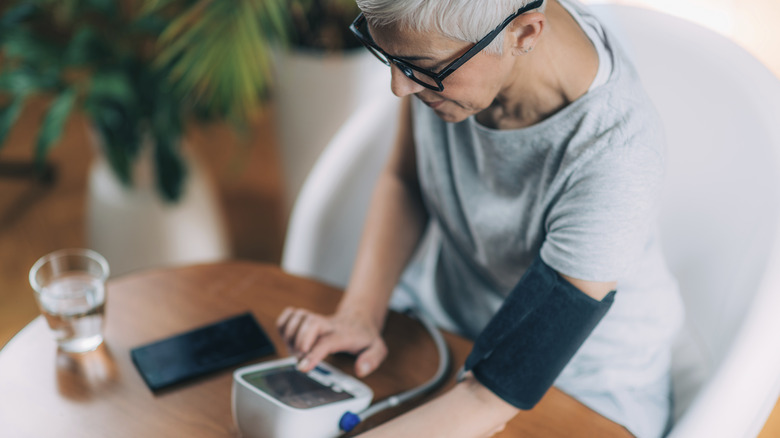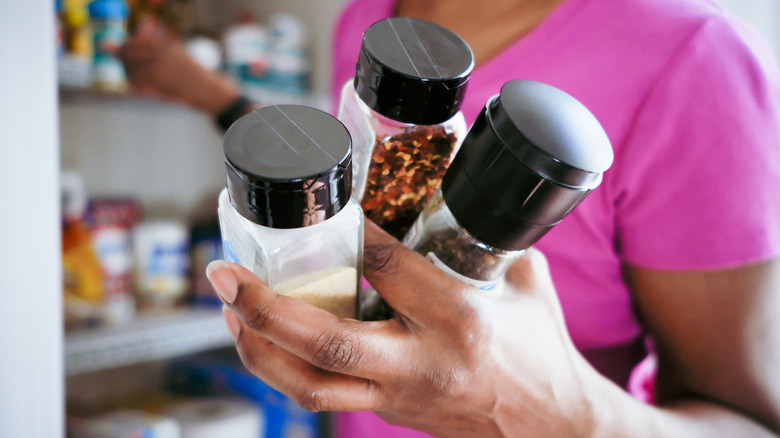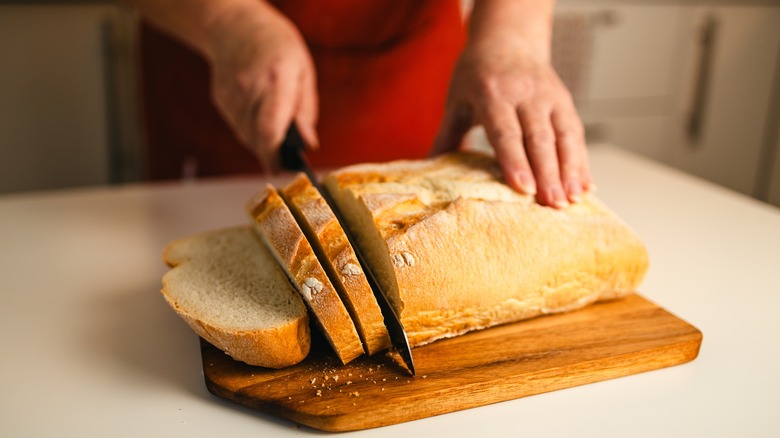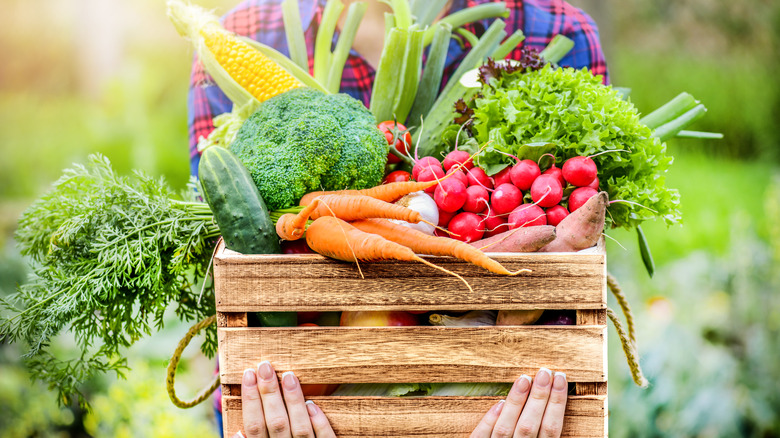3 Easy Food Hacks To Lower High Blood Pressure Fast
Having high blood pressure puts you at a greater risk for developing cardiovascular disease. That's why it's essential to take control of your hypertension and bring down your numbers as quickly as you can. In many cases, this can involve modifying your habits in terms of food choices or level of regular exercise.
Others find that they need to take certain medications to gain the upper hand on their blood pressure. Depending on your medical history and other lifestyle-related factors, your healthcare provider might recommend taking a beta-blocker, alpha-blocker, ACE inhibitor, diuretic, or other common blood pressure-reducing medication, as noted by the American Heart Association.
But rest assured that not every strategy to rapidly decrease your blood pressure requires major changes in your everyday routine or reliance on medication. In an exclusive interview with Health Digest, Dr. Chris Mohr, a fitness and nutrition advisor at Fortune Recommends Health, shares three simple blood pressure maintenance hacks.
Get cozy with your spice rack
One of the first places to turn when you're trying to lower your blood pressure is your collection of kitchen spices and seasonings. Why? The more flavor you bring to your food with salt-free spices and spice blends, the less sodium you'll need to use to make your dishes taste great. As Dr. Chris Mohr explains to Health Digest, cutting down on salt is critical to maintaining a healthier blood pressure level. Some of his favorite seasoning replacements for salt include garlic, rosemary, and thyme. But feel free to experiment since there are dozens of spices and herbs on the market, according to the McCormick Science Institute.
Just how significantly can lowering your sodium affect your blood pressure? In a 2023 JAMA-published crossover trial, middle-aged and older participants who ate low-sodium diets saw a decrease in their blood pressure levels. This occurred whether or not they had existing hypertension.
A 2021 meta-analysis from Circulation showed similarly positive findings on the relationship between low sodium consumption and lowered blood pressure, regardless of whether or not subjects had high blood pressure. However, the meta-analysis did add that the most notable blood pressure decline responses happened for people whose blood pressure levels were highest. Therefore, people who have very high blood pressure may see greater gains by swapping spices for salt than their counterparts who have blood pressure ratings closer to a healthy normal.
Give grains a try
Be honest: Do you eat refined grains or whole grains? Maybe you don't know, but Dr. Chris Mohr says it's worth your while to find out, especially if you're hoping to bring down your blood pressure. "Choose whole grains like brown rice and whole wheat bread instead of white rice and white bread," counsels Dr. Mohr. "Whole grains have more fiber and nutrients, which help lower cholesterol and support heart health. Fiber is like a secret weapon for heart health and blood pressure, among other positive health outcomes."
In a 2023 review published in Cureus focused on dietary fiber intake and hypertension in adults around the globe, authors found a consistent "positive overall impact" between a high consumption of fiber and low blood pressure ratings. Likewise, a 2024 review article in Hypertension set 28 and 38 grams of fiber as daily goals for women and men with hypertension, respectively. It also noted that bumping up a day's worth of fiber beyond those numbers by just five grams (e.g., 33 and 43 grams) could further reduce systolic and diastolic readings.
Go bananas (and broccoli) for produce
"Try to fill half your plate with fruits and vegetables at every meal," advises Dr. Chris Mohr. "They are packed with potassium, which plays a role in blood pressure management, and they also provide fiber and antioxidants."
In a 2023 Hypertension commentary, the authors argue that potassium should be used more often by medical experts to help patients regulate their blood pressure. They support their assertion by citing several pieces of evidence pointing toward the conclusion that "an adequate intake of potassium was desirable to achieve a lower BP [blood pressure]."
Of course, if you're in a hurry during your next shopping excursion, you might not want to take the time to investigate which produce gives you the most potassium per serving. No problem: WebMD has you covered, providing a substantial list of the top potassium-rich food sources, including bananas, melons, broccoli, mushrooms, potatoes, and greens.




